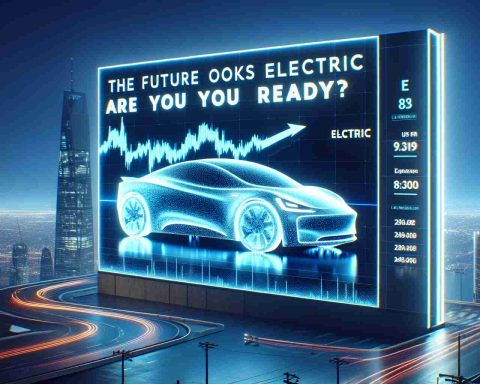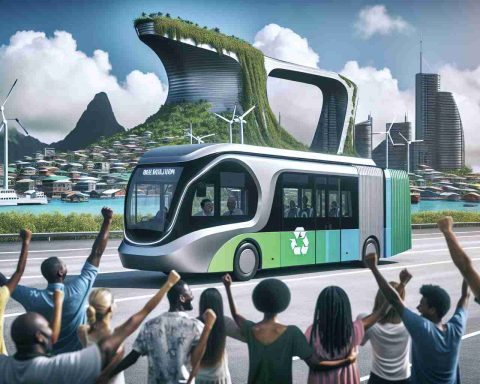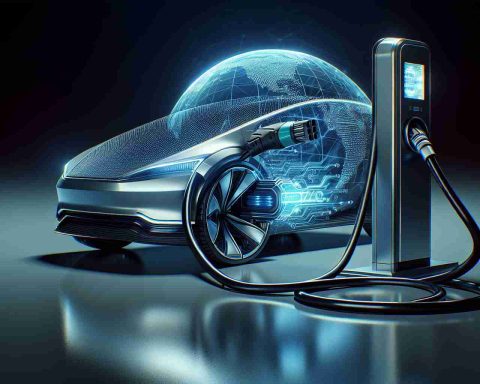Exciting news is on the horizon for Illinois school districts as they prepare to embrace electric transportation! Governor J.B. Pritzker recently announced a substantial investment of almost $20 million to support the acquisition of 70 zero-emission buses. This initiative is backed by a grant awarded by the Illinois State Board of Education, coming from federal funds under the Clean Heavy-Duty Vehicles Grant Program, part of President Joe Biden’s Inflation Reduction Act.
Troy Community Consolidated School District 30-C is at the forefront, set to acquire a whopping 32 electric buses along with the necessary charging infrastructure. Meanwhile, both Joliet Township High School District 204 and Zion-Benton Township High School District 126 will each receive 10 buses, with additional buses allocated to six other districts, ensuring a broad impact.
Each electric bus represents an investment of approximately $284,000, promoting not only clean energy but also job training for local communities. The initiative aims to significantly reduce harmful emissions, enhancing air quality for students and residents alike.
To ensure the effective use of this funding, the grant will also cover the salaries of two full-time employees from the Illinois State Board of Education, focused on aiding districts in implementing this program and exploring green energy initiatives. As anticipation grows for this transformation in school transportation, the collaboration aims to spark a sustainable future for Illinois education.
Illinois Schools Go Green: The Future of Electric Bus Transportation
The push for sustainable transportation in Illinois school districts is gaining momentum with a recent announcement from Governor J.B. Pritzker regarding an investment of nearly $20 million. This significant funding aims to facilitate the acquisition of 70 zero-emission buses, a move designed to align educational institutions with cleaner energy initiatives under the federal Clean Heavy-Duty Vehicles Grant Program.
Overview of the Initiative
This groundbreaking initiative is made possible through grants from the Illinois State Board of Education, specifically utilizing federal funds allocated by President Joe Biden’s Inflation Reduction Act. The program is not only focused on reducing carbon footprints but also on providing skills training for local communities, ensuring a job-ready workforce in the green energy sector.
Key Features of the Electric Bus Program
1. Investment in Electric Buses: Each of the newly acquired electric buses represents an investment of approximately $284,000. This substantial sum highlights a commitment to improving school transportation while simultaneously promoting environmental sustainability.
2. Job Training and Employment: The initiative places a strong emphasis on community impact through job training programs. Local residents can gain valuable skills as the program seeks to create employment opportunities related to the maintenance and operation of electric vehicles.
3. Broad Impact Across Districts: Troy Community Consolidated School District 30-C is set to lead the charge with 32 electric buses, while Joliet Township High School District 204 and Zion-Benton Township High School District 126 will each receive 10 buses. Furthermore, additional buses will be allocated to six other districts, maximizing the reach and impact of this initiative.
Benefits of Electric Vehicles in Schools
– Environmental Impact: The transition to electric buses is expected to significantly cut harmful emissions, contributing to improved air quality for students and communities.
– Operational Cost Savings: While the initial investment is substantial, electric buses tend to have lower operational costs over time due to lower fuel expenses and reduced maintenance needs compared to traditional diesel buses.
– Enhanced Educational Opportunities: The need for training and expertise in operating and maintaining electric buses may lead to new curriculum developments in local schools, potentially inspiring future careers in clean energy and technology.
Potential Challenges
Despite the clear benefits, there are limitations and challenges to consider:
– Infrastructure Development: The installation of charging stations and necessary infrastructure represents a significant logistical challenge that must be addressed to support the fleet of electric buses.
– Initial Costs: Although operational costs are generally lower, the upfront investment for electric buses is significantly higher than traditional models, which may be a barrier for some districts.
– Ongoing Maintenance and Training Needs: School districts will need to ensure ongoing training for staff to manage this new technology effectively, which can incur additional costs.
Future Trends and Predictions
As more school districts in Illinois and across the country adopt electric school buses, we can anticipate a broader shift towards sustainable practices within public transportation systems. The success of this program could inspire similar initiatives elsewhere, potentially leading to a comprehensive network of electric vehicles that serve public and educational transportation needs.
For more information on educational sustainability initiatives, visit Illinois Education Statement.



















